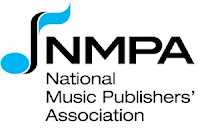Guest List Dos:
1. Find out how many guest list spaces are available as far before the gig as you can so there's no last minute confusion.
2. Make sure that VIPs that can help your career, like agents, managers and label execs, make it on the list before friends and family.
3. Be upfront with people about the likelihood of getting on the list. Some people get seriously offended if they come to the show and find they're not included.
4. Consider other options like discounted tickets before placing someone on the guest list, especially when the list is limited.
5. Make sure that one person and one person only in the band is responsible for the list to help keep everything straight.
Guest List Don'ts:
1. Don't push a promoter for extra guest list spaces, especially if you're a support band.
2. Don't feel like you have to give everyone on the list a plus one. You'll eat up spaces that you can use for someone more important rather than someone you don't know.
3. You don't owe someone a backstage pass just because they're on the guest list. They're two different animals.
4. Don't have a guest list for a charity show. It's bad form, and you have the perfect out in that the show is raising money for a good cause.
5. Don't trade guest list spots with other bands. It takes up too much energy trying to remember who's owed what later.
This is a good place to start. Anybody have any additions?
----------------------------------
Help support this blog. Any purchases made through our Amazon links help support this website with no cost to you.
Follow me on Forbes for some insights on the new music business.
You should follow me on Twitter for daily news and updates on production and the music business.
You should follow me on Twitter for daily news and updates on production and the music business.
Check out my Big Picture blog for discussion on common music, engineering and production tips and tricks.










